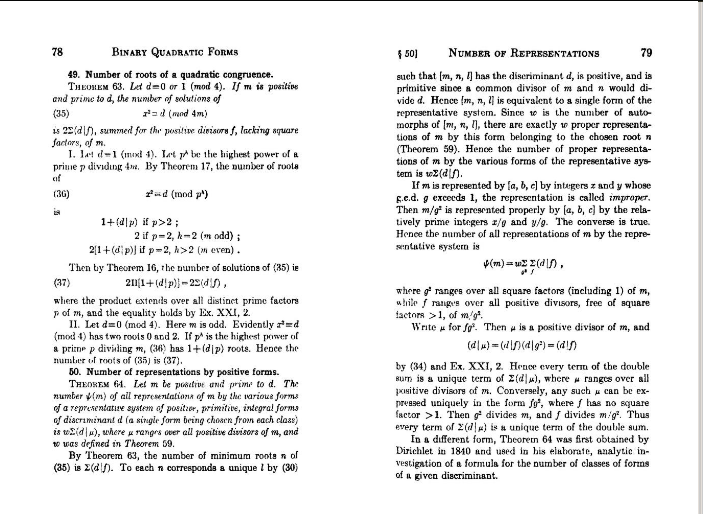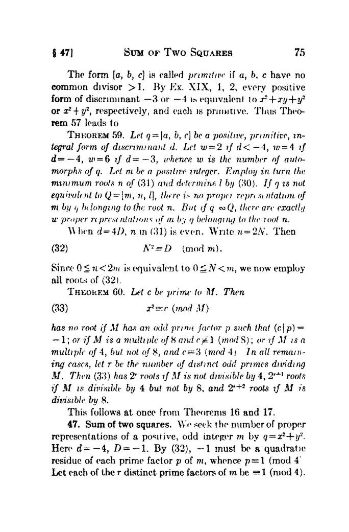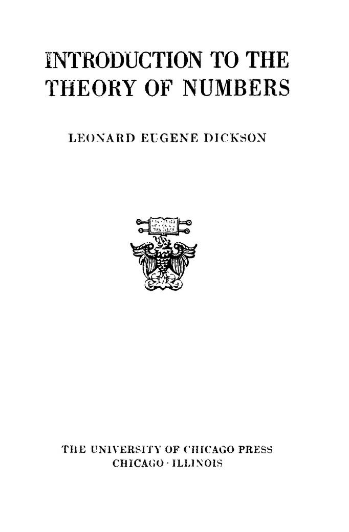Let $Q(x,y)$ be a positive definite quadratic form of discriminant $d$. Let $r_Q(n)$ be the number of solutions of $Q(x,y)=n$. It is known that the function $f_Q(\tau)=\sum_{n=0}^{\infty}r_Q(n)q^n$ is a modular form of weight $1$. Let $Q_1,\ldots,Q_{h_d}$ be representatives for nonequivalent classes of forms of discriminant $D$. Then we have the formula $$\sum_{k=1}^{h_d}r_{Q_k}(n)=\sum_{t\mid n}\chi_d(t).$$ I know how to prove this using ideals and $L$-series, or in an elementary way. Is there a proof that uses the fact that $f_Q(\tau)$ is a modular form? Can you give me a reference?
$\begingroup$ $\endgroup$
3 - 1$\begingroup$ This is theorem 64 on pages 78-79 of Dickson, (1929) Introduction to the Theory of Numbers. On pages 80-81 he does $x^2 +y^2$ and some other class number one forms. There is a coefficient $w$ we now call the Tamagawa number, defined in theorem 59 on page 75 $\endgroup$Will Jagy– Will Jagy2021-02-16 00:13:48 +00:00Commented Feb 16, 2021 at 0:13
- 1$\begingroup$ archive.org/details/in.ernet.dli.2015.466075/page/n1/mode/2up you can read it online; if it lets me I will post pages $\endgroup$Will Jagy– Will Jagy2021-02-16 00:46:25 +00:00Commented Feb 16, 2021 at 0:46
- 2$\begingroup$ You need to show that $\sum_{k = 1}^{h_d} f_{Q_k}(\tau) = E^{\ast}(\tau,1/2,\chi_d)$, where the right-hand side is the completed Eisenstein series associated to $\chi_d$. $\endgroup$Peter Humphries– Peter Humphries2021-02-16 00:50:23 +00:00Commented Feb 16, 2021 at 0:50
Add a comment |
1 Answer
$\begingroup$ $\endgroup$
1 The coefficient $w$ in theorem 64 is usually $2,$ but is $4$ for discriminant $-4,$ then $6$ for discriminant $-3$
- 1$\begingroup$ Thank you for your answer, I downloaded the book and will look into it. However, this does not answer my question; what I had in mind was rather a proof along the lines of the proof of two/four square theorem using the series $\sum q^{n^2}$. $\endgroup$Shimrod– Shimrod2021-02-17 14:37:13 +00:00Commented Feb 17, 2021 at 14:37



